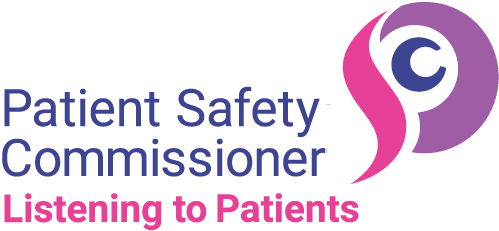
Eirian Edwards and Chris Subbe explain how they have implemented the new initiative in Wales
In April 2023 we officially launched the Call 4Concern service for all adult patients admitted to our hospital in Bangor, as the first site in Wales to offer such a service.
Call 4Concern is the option for patients, relatives, or friends to contact a member of the Critical Care Outreach team. Locally this means that callers ring the hospital switchboard, ask for Call4Concern and get a call back to discuss their concern. The Call 4Concern service is one service model that is in line with the recommendations made by the Patient Safety Commissioner for Martha’s Rule. It was championed at the Royal Berkshire hospital.
The Yybyty Gwynedd is a mid-sized district general hospital located between Snowdonia and the Isle of Anglesey and has a track record for being at the heart of patient safety innovation. In 2012, it was one of the first hospitals in the United Kingdom to implement the National Early Warning Score.
In November 2022, the service was tested with patients discharged from intensive care and since then, we have assessed the function of the escalation pathway with simulated calls, revised the documentation several times, and agreed data collection priorities. We then tested on one ward and on the 1st of April 2023, we went live across all adult wards.
Since then we have seen over 70 patients (1-2 per week), admitted one patient to the Intensive Care Unit, treated one patient with diabetic ketoacidosis on the ward, and adjusted treatments in a number of other patients. Most calls were from relatives, many were concerns about communication, and very few calls were made at night.
Patient feedback told us that patients really appreciate that the critical care outreach team is taking their calls seriously and that they are listening to their concerns. Significantly more staff members have used the service as an anonymous helpline than have complained about it! It is possible that there are more unhappy staff, but we had only one colleague who explicitly raised concerns about undermining the primary team. We met and reassured them that the service was there to support everybody, including the staff member who might have been too overworked to raise the alarm themselves.
We had a significant cluster of calls from patients who were ‘boarders’ or ‘medical outliers’, not on the ward that specialises in their condition. These patients were rightly more concerned about issues being missed.
Our experience is very similar to that of other teams in the UK, Australia and New Zealand. The number of people that ring to complain about lost slippers or car parking are negligible. People are behaving responsibly and respectfully.
In a perfect system, everybody who deteriorates will be escalated. In a good system it does not matter whether escalation is by a member of staff or a relative or patient. What matters is that every deterioration is recorded, recognised, reported and responded to and resolved safely.
We owe it to Martha and Ryan and all the other patients where deterioration could have been reported but unfortunately was not.
Eirian Edwards is Advanced Nurse Practitioner, Acute Intervention Team, Ysbyty Gwynedd, Bangor
Chris Subbe is a Consultant in Acute, Respiratory & Critical Care Medicine, Ysbyty Gwynedd & Senior Clinical Lecturer, Bangor University, Bangor

